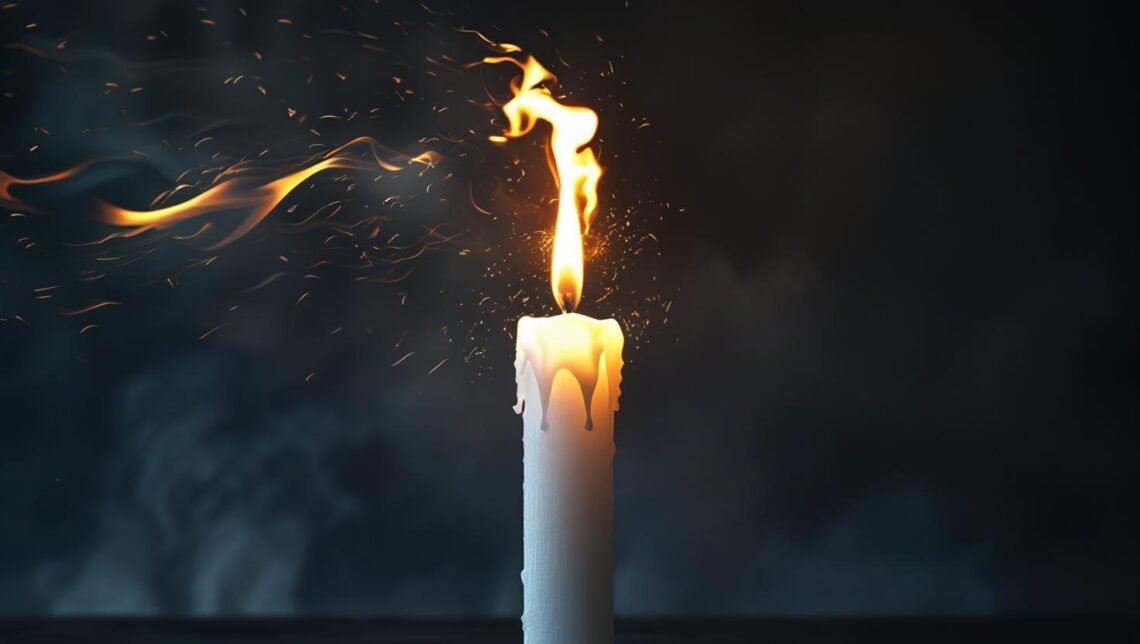A reflection on hope in the age of acceleration
There is a curious dissonance in the air these days. The sort of hurried stillness one might experience aboard a train hurtling through the countryside, motion all around, but no sense of destination. The world is speeding up, no doubt about it. Faster news, faster machines, faster opinions. And yet, for all our velocity, one cannot help but wonder whether we are actually arriving anywhere, or merely spinning faster and faster in place.
My grandparents were coffee farmers, and I remember, with some fondness, the quiet ritual my grandmother performed each morning in pursuit of her first cup. It was never hurried. In fact, it began days in advance, freshly picked cherries laid out upon a sunlit concrete slab, what she called the drying yard, where they would slowly shed their sweetness and shrink to something more enduring. Once dried to her satisfaction, the beans were roasted over a small fire, their fragrance mingling with woodsmoke and birdsong. But even then, they were not consumed. No, they were stored, rested, until the time was right. And only then would the water be boiled, the beans ground slowly in a wooden mortar carved into an old tree stump, and the brew coaxed through cheesecloth into something rich, dark, and utterly unhurried. The making of the coffee took many times longer than the drinking of it, but that, was precisely the point. Time, for them, was not something to be defeated, it was part of the flavour.
How different it all seemed just the other day, standing in an airport, another marvel my grandparents never knew, where I tapped a button on an LED screen for a cup of “fresh-ground” Americano coffee and received it, piping hot, in less than a minute. From roasted bean to steaming cup in the blink of an eye. It was convenient, certainly. Efficient. But as I stood there holding that cup, I couldn’t help but wonder whether something else, something quieter, older, and altogether more human—had been left behind in the rush.
Technology, of course, has a good deal to answer for in this matter. The world now fits in the palm of our hand, and yet slips ever more elusively from our grasp. We are flooded daily with stories of upheaval, melting glaciers, market crashes, rising conflicts, AI revolutions, each demanding our attention, and few granting us time to grieve, or ponder, or pray.
The danger in such times is not merely exhaustion, though that is real enough. The deeper danger, I think, is numbness. When everything is urgent, nothing is sacred. When we are always reacting, we forget how to respond. And hope, true hope, not its cheap imitation, requires response. It asks us to look unflinchingly at the world as it is, and to imagine how it might yet become. Hope does not thrive in haste. It requires room to breathe.
What, then, are we to do? How does one remain tender in a time that rewards efficiency? How does one keep the flame alive when the winds of the world seem intent on snuffing it out?
I have no algorithm for this, I’m afraid. But I can tell you what I’ve observed among those who live with luminous grace, even in the blur of modern life: they choose slowness. They walk when others rush. They read poems aloud. They sit beside the dying. They notice the way shadows fall across old stone walls. They write real letters, with stamps. They create space for wonder, grief, and laughter, those unruly companions of the human soul.
They remind me that to live well in an age of acceleration is not to match its speed, but to root oneself deeply in those things that do not move.
And that, dear reader, is the first posture of the curator of hope.
Today, I invite you to make a deliberate pause. Not a break for the sake of productivity, but a true pause, for beauty, silence, breath. Let it be as simple as watching a leaf drift, or holding your tea a moment longer before you sip. Let that moment be your quiet defiance against the tyranny of speed. Let it be your first curatorial act.
For the flame of hope, small though it may be, thrives in stillness. And so may you.





